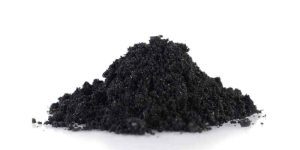Wood ash benefits for plants by providing essential nutrients like potassium and phosphorus, raising soil pH, and deterring pests. It can also improve soil structure and enhance plant growth.
Wood ash is a valuable organic fertilizer that can be used to enrich the soil and promote healthy plant development. Its high potassium content supports flower and fruit production, while its alkaline nature helps neutralize acidic soils. Additionally, wood ash aids in preventing certain plant diseases and repelling pests.
By understanding the benefits of wood ash for plants, gardeners can utilize this natural resource to cultivate thriving and vibrant gardens.
Unlocking The Power Of Wood Ash For Your Garden
A Natural Source Of Nutrients
Wood ash is a natural and cost-effective way to provide essential nutrients to your plants. It contains potassium, phosphorus, and calcium, which are vital for plant growth. These nutrients help promote strong root development, flower formation, and fruit production.
Improving Soil Ph Balance
Wood ash can be valuable for adjusting soil pH levels. It is alkaline in nature and can help neutralize acidic soils, creating a more favorable environment for a variety of plants to thrive.
The Nutritional Profile Of Wood Ash
Wood ash is a natural fertilizer that contains essential nutrients like potassium, calcium, and magnesium for plant growth. Its alkaline properties help neutralize soil acidity, making it a beneficial addition to gardens. Additionally, wood ash can improve soil structure and water retention, leading to healthier plants.
Rich In Potassium
Wood ash is high in potassium, a vital nutrient for plant growth.
– Potassium in wood ash helps regulate plant water balance.
– It enhances flower and fruit production.
Trace Elements In Ash
Wood ash contains essential trace elements for plant health.
– Trace elements in ash aid in nutrient absorption.
– They contribute to overall plant vitality.
Boosting Plant Growth With Wood Ash

Boost plant growth with the benefits of wood ash. Wood ash provides essential nutrients like potassium and calcium to promote healthy plant development, making it an effective and natural fertilizer for gardens and crops. Its alkaline properties also help to balance soil pH levels, improving overall plant health.
Wood ash is a natural and inexpensive soil amendment that offers numerous benefits for plants. It contains essential nutrients such as potassium, phosphorus, and calcium that are vital for plant growth. Additionally, wood ash can help to boost plant growth by enhancing root development, promoting flowering and fruiting, and improving soil pH. In this article, we’ll take a closer look at the benefits of wood ash for plants and how it can help to promote healthy growth.
Enhancing Root Development
Wood ash contains high levels of potassium, which is essential for root development. Potassium helps to regulate water movement in plants, allowing them to absorb water and nutrients more efficiently. As a result, plants can develop stronger and healthier root systems, which help to support their overall growth and development.
Promoting Flowering And Fruiting
In addition to enhancing root development, wood ash can also help to promote flowering and fruiting in plants. This is because wood ash contains phosphorus, which is essential for flower and fruit development. Phosphorus helps to stimulate the growth of flowers and fruit, which can result in more abundant yields and larger, more vibrant blooms.
Improving Soil Ph
One of the most significant benefits of wood ash for plants is its ability to improve soil pH. Wood ash is alkaline, which means it can help to neutralize acidic soils. This is particularly beneficial for plants that prefer alkaline soil conditions, such as tomatoes, peppers, and brassicas. By adding wood ash to your soil, you can help to create a more balanced pH level, which can result in healthier and more productive plants.
In summary, wood ash is an excellent soil amendment that can offer numerous benefits for plants. By enhancing root development, promoting flowering and fruiting, and improving soil pH, wood ash can help to boost plant growth and health. So, the next time you have a wood-burning fire, don’t throw away the ash – instead, use it to nourish your plants and help them thrive!
Wood Ash For Pest Control
Wood ash is a versatile and natural solution for pest control in the garden. It can be used to create a barrier against slugs and snails, as well as to naturally deter ants, providing a chemical-free alternative for gardeners.
A Barrier Against Slugs And Snails
Slugs and snails can wreak havoc on a garden, devouring tender plants and seedlings. Wood ash acts as a protective barrier, as its abrasive texture deters these pests from crossing it. Sprinkling a ring of wood ash around vulnerable plants can effectively keep slugs and snails at bay.
Deterring Ants Naturally
Ants can disrupt the garden ecosystem and protect aphids, which can damage plants. Wood ash can be used to discourage ants from entering the garden or specific areas. The alkaline nature of wood ash is unappealing to ants, making it an effective and natural deterrent.
Improving Soil Health With Wood Ash
Wood ash is a natural and cost-effective way to enhance the health of your soil. It is packed with essential nutrients that can benefit plants in various ways. By using wood ash in your gardening routine, you can boost compost performance and enhance soil structure, leading to healthier and more productive plants.
Boosting Compost Performance
Wood ash is a valuable addition to your compost pile. When added to compost, it helps to speed up decomposition, resulting in nutrient-rich compost that can improve soil fertility. The high levels of potassium in wood ash promote the growth of strong and vibrant plants, while the calcium content helps to regulate pH levels in the soil.
Here are some key benefits of using wood ash in compost:
- Increases the availability of nutrients for plants
- Helps to balance the carbon-to-nitrogen ratio in compost
- Enhances microbial activity, aiding in the breakdown of organic matter
- Reduces odors and repels pests in the compost pile
Enhancing Soil Structure
Wood ash can also improve the structure of your soil, making it more suitable for plant growth. It contains fine particles that help to loosen heavy clay soils and improve drainage. Additionally, wood ash contains trace elements such as magnesium and phosphorus, which are essential for plant growth and development.
Here are some benefits of using wood ash to enhance soil structure:
- Loosens compacted soil, allowing roots to penetrate more easily
- Improves water infiltration and reduces the risk of waterlogging
- Provides essential nutrients for plant uptake
- Helps to maintain a balanced soil pH
When using wood ash in your garden, it is important to note that moderation is key. Excessive use of wood ash can raise the soil pH too high, leading to nutrient imbalances and potential harm to plants. Therefore, it is recommended to conduct a soil test and consult with a gardening expert to determine the appropriate amount of wood ash to use for your specific soil conditions.
Sustainable Gardening Practices With Wood Ash
Wood ash is a valuable resource for gardeners who want to reduce waste and practice eco-friendly fertilization techniques. Not only does wood ash provide essential nutrients for plants, but it also helps to maintain soil pH levels and repel pests.
Reducing Waste
One of the main benefits of using wood ash in your garden is that it helps to reduce waste. Instead of throwing away wood ash from your fireplace or wood stove, you can use it to improve the health of your plants. By reusing this resource, you are helping to reduce the amount of waste that ends up in landfills and contributing to a more sustainable future.
Eco-friendly Fertilization
Wood ash is a natural and eco-friendly fertilizer that provides plants with essential nutrients such as potassium, calcium, and magnesium. These nutrients help to promote healthy growth and development in plants, leading to higher yields and better quality produce. Additionally, wood ash helps to maintain soil pH levels, which is crucial for plant growth.
When using wood ash as a fertilizer, it is important to apply it in moderation. Too much wood ash can raise the pH levels in the soil too high, leading to nutrient deficiencies in plants. It is recommended to apply no more than 10-15 pounds of wood ash per 1,000 square feet of soil per year.
Overall, using wood ash in your garden is a sustainable and eco-friendly practice that can benefit both your plants and the environment. By reusing this resource and providing your plants with essential nutrients, you can enjoy a bountiful harvest and contribute to a healthier planet.
Precautions When Using Wood Ash
When using wood ash in the garden, follow these precautions to ensure the health of your plants:
Avoiding Overuse
Do not apply wood ash excessively to prevent soil alkalinity.
Plants That Prefer Acidic Soil
Certain plants like blueberries thrive in acidic soil, so be cautious when using wood ash around them.
Creative Uses Of Wood Ash In The Garden
Homemade Pest Deterrent
Wood ash can be used as a natural pest deterrent in your garden.
Natural Pathway Weed Control
Wood ash can help control weeds on pathways in a natural way.

Frequently Asked Questions
Can Wood Ash Be Used As A Fertilizer For Plants?
Yes, wood ash can be used as a fertilizer for plants. It contains essential nutrients like potassium, calcium, and magnesium that can promote plant growth and improve soil fertility. However, it’s important to use it in moderation, as excessive application can be harmful to certain plants.
How Should Wood Ash Be Applied To Plants?
To apply wood ash to plants, sprinkle a thin layer around the base of the plants and gently work it into the soil. Avoid direct contact with plant stems or foliage, as it can cause damage. It’s also advisable to evenly distribute the ash to prevent concentration in one area, which could lead to nutrient imbalances.
What Are The Benefits Of Using Wood Ash In The Garden?
Using wood ash in the garden offers several benefits. It helps to raise soil pH levels, making it more alkaline, which is beneficial for certain plants. Additionally, wood ash contains essential minerals that can improve soil fertility and promote healthy plant growth.
It can also deter pests and provide some protection against fungal diseases.
Are There Any Plants That Don’t Benefit From Wood Ash?
While wood ash can be beneficial for many plants, there are some exceptions. Acid-loving plants, such as azaleas, rhododendrons, and blueberries, prefer acidic soil and may not tolerate the alkaline properties of wood ash. It’s best to avoid using wood ash around these plants and opt for alternative fertilizers suitable for acid-loving species.
Conclusion
By incorporating wood ash into your gardening routine, you can enhance soil fertility naturally. The potassium-rich ash helps plants thrive, promoting healthier growth and improved fruit production. With its cost-effective and eco-friendly benefits, using wood ash can be a sustainable choice for gardeners seeking to boost their plant health.


